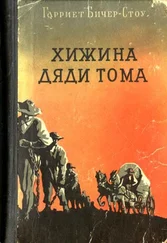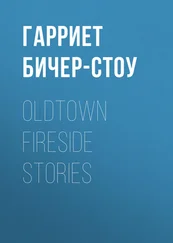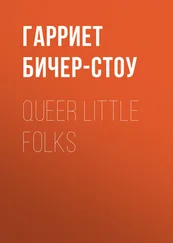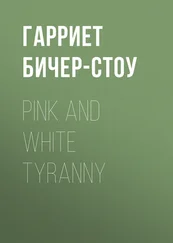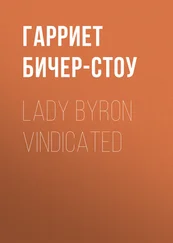Гарриет Бичер-Стоу - Sunny Memories Of Foreign Lands, Volume 1
Здесь есть возможность читать онлайн «Гарриет Бичер-Стоу - Sunny Memories Of Foreign Lands, Volume 1» — ознакомительный отрывок электронной книги совершенно бесплатно, а после прочтения отрывка купить полную версию. В некоторых случаях можно слушать аудио, скачать через торрент в формате fb2 и присутствует краткое содержание. Жанр: Путешествия и география, literature_19, foreign_antique, foreign_prose, foreign_children, на английском языке. Описание произведения, (предисловие) а так же отзывы посетителей доступны на портале библиотеки ЛибКат.
- Название:Sunny Memories Of Foreign Lands, Volume 1
- Автор:
- Жанр:
- Год:неизвестен
- ISBN:нет данных
- Рейтинг книги:3 / 5. Голосов: 1
-
Избранное:Добавить в избранное
- Отзывы:
-
Ваша оценка:
- 60
- 1
- 2
- 3
- 4
- 5
Sunny Memories Of Foreign Lands, Volume 1: краткое содержание, описание и аннотация
Предлагаем к чтению аннотацию, описание, краткое содержание или предисловие (зависит от того, что написал сам автор книги «Sunny Memories Of Foreign Lands, Volume 1»). Если вы не нашли необходимую информацию о книге — напишите в комментариях, мы постараемся отыскать её.
Sunny Memories Of Foreign Lands, Volume 1 — читать онлайн ознакомительный отрывок
Ниже представлен текст книги, разбитый по страницам. Система сохранения места последней прочитанной страницы, позволяет с удобством читать онлайн бесплатно книгу «Sunny Memories Of Foreign Lands, Volume 1», без необходимости каждый раз заново искать на чём Вы остановились. Поставьте закладку, и сможете в любой момент перейти на страницу, на которой закончили чтение.
Интервал:
Закладка:
Professor Stowe, on rising to reply, was greeted with the most enthusiastic applause. He said that he appeared in the name of Mrs. Stowe, and in his own name, for the purpose of cordially thanking the people of Glasgow for the reception that had been given to them. But he could not find words to do it. Was it true that all this affectionate interest was merited? [Cheers.] He could not imagine any book capable of exciting such expressions of attachment; indeed he was inclined to believe it had not been written at all—he "'spected it grew." [Tremendous cheers.] Under the oppression of the fugitive slave law the book had sprung from the soil ready made. He regretted exceedingly that in consequence of the state of Mrs. Stowe's health, and in consequence of the great pressure of engagements on himself, their stay in this country would be necessarily short. But he hoped they would accept of the expression of thanks they offered, and their apology for not being in a condition to meet their kindness as they would desire. When they were about to set out from Andover, a friend of theirs expressed his astonishment that they should enter upon such a journey in the delicate state of Mrs. Stowe's health. The Scotch people, he doubted not, would be kind to them— they would kill them with kindness ; and he feared it would be so. It was from Glasgow the idea of the invitation they had received had originated; and well might it originate in that city, for when had been the time that Glasgow was not in earnest on the subject of freedom? They had had hard struggles for liberty, and they had been successful, and the people in the United States were now struggling for the same privilege. But they labored under circumstances greatly different from those in Great Britain. Scotland had ever been distinguished for its love of freedom. [Great applause.] The religious denominations in the United States—to a great extent, give few and feeble expressions of disapprobation against the system of slavery. Two denominations had never been silent—the Old Scotch Seceders, or Covenanters, and the disciples of William Penn—not one of their number, in the United States, owns a slave. Not one can own a slave without being ejected from the society. 1 1 Since my return to the United States I have been informed that the Freewill Baptist denomination have adopted the same rigid principle of slavery exclusion that characterizes the Scotch Seceders and the Quakers. Let this be known to their honor.
In fact, the general feeling was against slavery; but to avoid trouble, the people hesitate to give publicity to their feelings. Were this done, slavery would soon come to an end. Great sacrifices are sometimes made by slaveholders to get rid of slavery. He went once to preach in the State of Ohio. He found there a little log house. Inside was a delicate woman, feeble and with white hands. She seemed wholly unaccustomed to work. Her husband had the same appearance of delicacy. They were very poor. How had they come into that state? They belonged to a slave State, where they had formerly possessed a little family of slaves. They had felt slavery to be wrong. They set them free, and with the remainder of their little property tried to get their living by farming; but like many similar cases, it had been one of martyrdom. The Professor then proceeded to make some very practical remarks on the character of the fugitive slave law, after which he said that the prosperity of Great Britain in a great measure resulted from the products of slave labor. American cotton was the chief support of the system. We must, both in Britain and America, get free-grown cotton, or slavery will not, at least for a long time to come, be abolished. What he would impress on the minds of Christians was unity in this great work. Let slaveholders be ever so much opposed to each other on other topics, they were unanimous in their endeavors to support slavery. But let the prayers of all Christians and the efforts of all Christians be united; and the system of oppression would speedily be destroyed forever.
Public Meeting In Edinburgh—April 20
The Lord Provost rose, and stated that a number of letters of apology had been received from parties who had been invited to take part in the meeting, but who had been unable to attend. Among these he might mention Professor Blackie, the Rev. Mr. Gilfillan, of Dundee, Rev. J. Begg, D.D., the Earl of Buchan, Dr. Candlish, and Sir W. Gibson Craig, all of whom expressed their regret that they could not be present. One of them, he observed, was from a gentleman who had long taken an interest in the antislavery cause,—Lord Cockburn, 2 2 This venerated, and erudite jurist, the friend and biographer of the celebrated Lord Jeffrey, has recently died.
—and his note was so warm, and sympathetic, and hearty on the subject about which they had met, that he could not resist the temptation of reading it. It proceeded, "I regret, that owing to my being obliged to be in Ayrshire, it will not be in my power to join you in the expression of respect and gratitude to Mrs. Stowe; she deserves all the honor that can be done her; she has done more for humanity than was ever accomplished before by a single book of fiction. [Cheers.] It did not require much to raise our British feeling against slavery, but by showing us what substantially are facts, and the necessary tendency of this evil in its most mitigated form, she has greatly strengthened the ground on which this feeling rests. Her work may have no immediate or present influence on the states of her own country that are now unhappily under the curse, and may indeed for a time aggravate its horrors; but it is a prodigious accession to the constantly accumulating mass of views and evidence, which by reason of its force must finally prevail." [Cheers.] The Lord Provost proceeded to say, that they had now assembled chiefly to do honor to their distinguished guest, Mrs. Stowe. [Applause.] They had met, however, also to express their interest in the cause which it had been the great effort of her life to promote—the abolition of slavery. They took advantage of her presence, and the effect which was produced on the public mind of this country, to reiterate their love for the abolition cause, and their detestation of slavery. Before they were aware that Mrs. Stowe was to grace the city of Edinburgh with her presence, a committee had been organized to collect a penny offering—the amount to be contributed in pence, and other small sums, from the masses of this country—to be presented to her as some means of mitigating, through her instrumentality, the horrors of slavery, as they might come under her observation. It was intended at once as a mark of their esteem for her, of their confidence in her, of their conviction that she would do what was right in the cause, and, at the same time, as an evidence of the detestation in which the system of slavery was held in this free country. That penny offering now, he was happy to say, by the spontaneous efforts of the inhabitants of this and other towns, amounted to a considerable sum; to certain gentlemen in Edinburgh forming the committee the whole credit of this organization was due, and he believed one of their number, the Rev. Mr. Ballantyne, would present the offering that evening, and tell them all about it. He would not, therefore, forestall what he would have to say on the subject. They were also to have the pleasure of presenting Mrs. Stowe with an address from the committee in this city, which would be presented by another reverend friend, who would be introduced at the proper time. As there would be a number of speakers to follow during the evening, his own remarks must be exceedingly short; but he could not resist the temptation of saying how happy he felt at being once more in the midst of a great meeting in the city of Edinburgh, for the purpose of expressing their detestation of the system of slavery. They could appeal to their brethren in the United States with clean hands, because they had got rid of the abomination themselves; they could therefore say to them, through their friends who were now present, on their return home, and through the press, which would carry their sentiments even to the slave states—they could say to them that they had washed their own hands of the evil at the largest pecuniary sacrifice that was ever made by any nation for the promotion of any good cause. [Loud applause.] Some parties said that they should not speak harshly of the Americans, because they were full of prejudice with regard to the system which they had seen growing up around them. He said so too with all his heart; he joined in the sentiment that they should not speak harshly, but they might fairly express their opinion of the system with which their American friends were surrounded, and in which he thought all who supported it were guilty participators. [Hear, hear!] They could denounce the wickedness, they could tell them that they thought it was their duty to put an end to it speedily. The cause of the abolition of slavery in our own colonies long hung without any visible progress, notwithstanding the efforts of many distinguished men, who did all they could to mitigate some of its more prominent evils; and yet, so long as they never struck at the root, the progress which they made was almost insensible. They knew how many men had spent their energies, and some of them their lives, in attempting to forward the cause; but how little effect was produced for the first half of the present century! The city of Edinburgh had always, he was glad to say, taken a deep interest in the cause; it was one of the very first to take up the ground of total and entire abolition. [Cheers.] A predecessor of his own in the civic chair was so kind as to preside at a meeting held in Edinburgh twenty-three years ago, in which a very decided step was proposed to be taken in advance, and a resolution was moved by the then Dean of Faculty, to the effect that on the following first of January, 1831, all the children born of slave parents in our colonies were from that date to be declared free. That was thought a great and most important movement by the promoters of the cause. There were, however, parties at that crowded meeting who thought that even this was a mere expedient—that it was a mere pruning of the branches, leaving the whole system intact. One of these was the late Dr. Andrew Thomson—[cheers]—who had the courage to propose that the meeting should at once declare for total and immediate abolition, which proposal was seconded by another excellent citizen, Mr. Dickie. Dr. Thomson replied to some of the arguments which had been put forward, to the effect that the total abolition might possibly occasion bloodshed; and he said that, even if that did follow, it was no fault of his, and that he still stuck to the principle, which he considered right under any circumstances. The chairman, thereupon, threatened to leave the chair on account of the unnecessarily strong language used, and when the sentiments were reiterated by Mr. Dickie, he actually bolted, and left the meeting, which was thrown into great confusion. A few days afterwards, however, another meeting was held—one of the largest and most effective that had been ever held in Edinburgh—at which were present Mr. John Shank More in the chair, the Rev. Dr. Thomson, Rev. Dr Gordon, Dr. Ritchie, Mr. Muirhead, the Rev. Mr. Buchanan of North Leith, Mr. J. Wigham, Jr., Dr. Greville, &c. The Lord Provost proceeded to read extracts from the speeches made at the meeting, showing that the sentiments of the inhabitants of Edinburgh, so far back as 1830, as uttered by some of its most distinguished men,—not violent agitators, but ministers of the gospel, promoters of peace and order, and every good and every benevolent purpose,—were in favor of the immediate and total abolition of slavery in our colonies. He referred especially to the speech of Dr. Andrew Thomson on this occasion, from which he read the following extract: "But if the argument is forced upon me to accomplish this great object, that there must be violence, let it come, for it will soon pass away—let it come and rage its little hour, since it is to be succeeded by lasting freedom, and prosperity, and happiness. Give me the hurricane rather than the pestilence. Give me the hurricane, with its thunders, and its lightnings, and its tempests—give me the hurricane, with its partial and temporary devastations, awful though they be—give me the hurricane, which brings along with it purifying, and healthful, and salutary effects—give me the hurricane rather than the noisome pestilence, whose path is never crossed, whose silence is never disturbed, whose progress is never arrested by one sweeping blast from the heavens—which walks peacefully and sullenly through the length and breadth of the land, breathing poison into every heart, and carrying havoc into every home—enervating all that is strong, defacing all that is beautiful, and casting its blight over the fairest and happiest scenes of human life—and which from day to day, and from year to year, with intolerant and interminable malignity, sends its thousands and tens of thousands of hapless victims into the ever-yawning and never-satisfied grave!"—[Loud and long applause.] The experience which they had had, that all the dangers, all the bloodshed and violence which were threatened, were merely imaginary, and that none of these evils had come upon them although slavery had been totally abolished by us, should, he thought, be an encouragement to their American friends to go home and tell their countrymen that in this great city the views now put forward were advocated long ago—that the persons who now held them said the same years ago of the disturbances and the evils which would arise from pressing the question of immediate and total abolition—that the same kind of arguments and the same predictions of evil were uttered in England—and although she had not the experience, although she had not the opportunity of pointing to the past, and saying the evil had not come in such a case, still, even then, they were willing to face the evil, to stick to the righteous principle, and to say, come what would, justice must be done to the slave, and slavery must be wholly and immediately abolished. [Cheers.] He had said so much on the question of slavery, because he was very sure it would be much more agreeable to their modest and retiring and distinguished guest that one should speak about any other thing than about herself. Uncle Tom's Cabin needed no recommendation from him. [Loud cheers.] It was the most extraordinary book, he thought, that had ever been published; no book had ever got into the same circulation; none had ever produced a tithe of the impression which it had produced within a given time. It was worth all the proslavery press of America put together. The horrors of slavery were not merely described, but they were actually pictured to the eye. They were seen and understood fully; formerly they were mere dim visions, about which there was great difference of opinion; some saw them as in a mist, and others more clearly; but now every body saw and understood slavery. Every body in this great city, if they had a voice in the matter, would be prepared to say that they wished slavery to be utterly extinguished. [Loud cheers.]
Интервал:
Закладка:
Похожие книги на «Sunny Memories Of Foreign Lands, Volume 1»
Представляем Вашему вниманию похожие книги на «Sunny Memories Of Foreign Lands, Volume 1» списком для выбора. Мы отобрали схожую по названию и смыслу литературу в надежде предоставить читателям больше вариантов отыскать новые, интересные, ещё непрочитанные произведения.
Обсуждение, отзывы о книге «Sunny Memories Of Foreign Lands, Volume 1» и просто собственные мнения читателей. Оставьте ваши комментарии, напишите, что Вы думаете о произведении, его смысле или главных героях. Укажите что конкретно понравилось, а что нет, и почему Вы так считаете.

